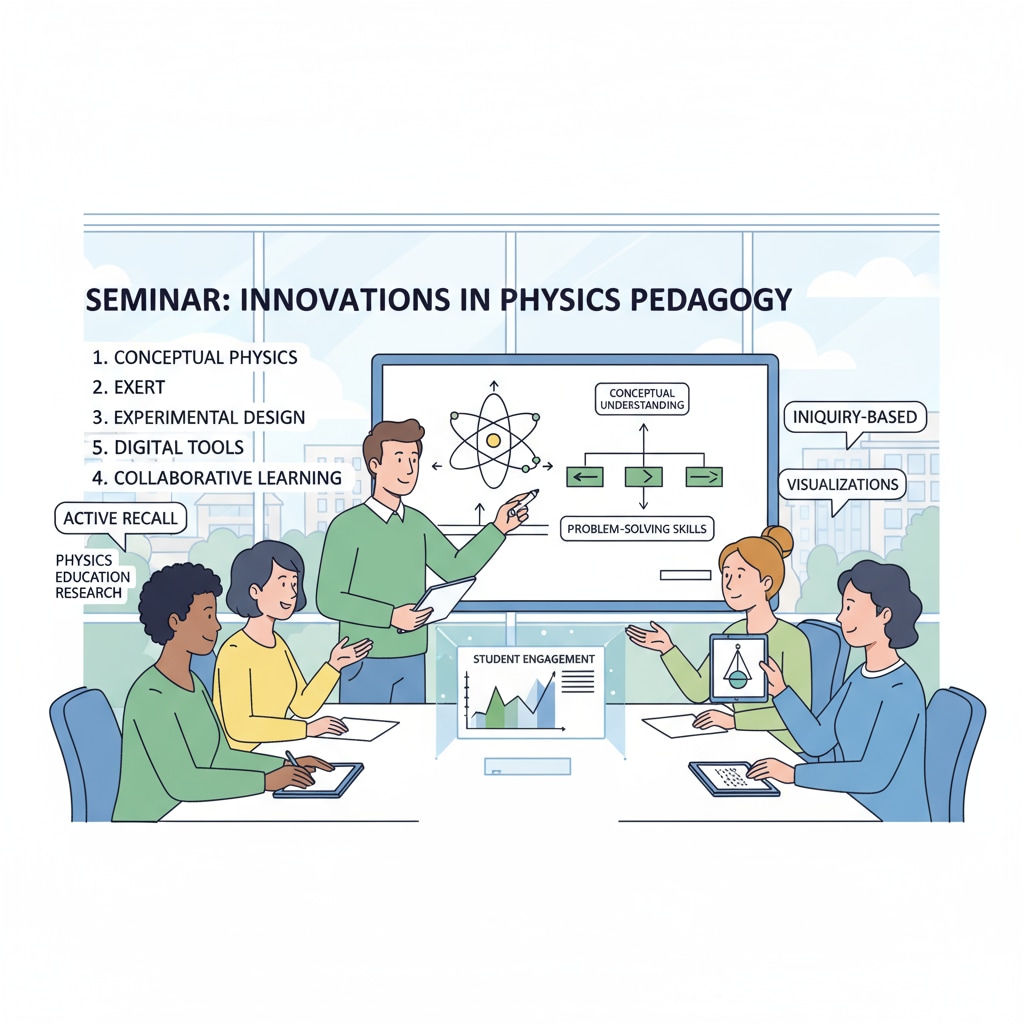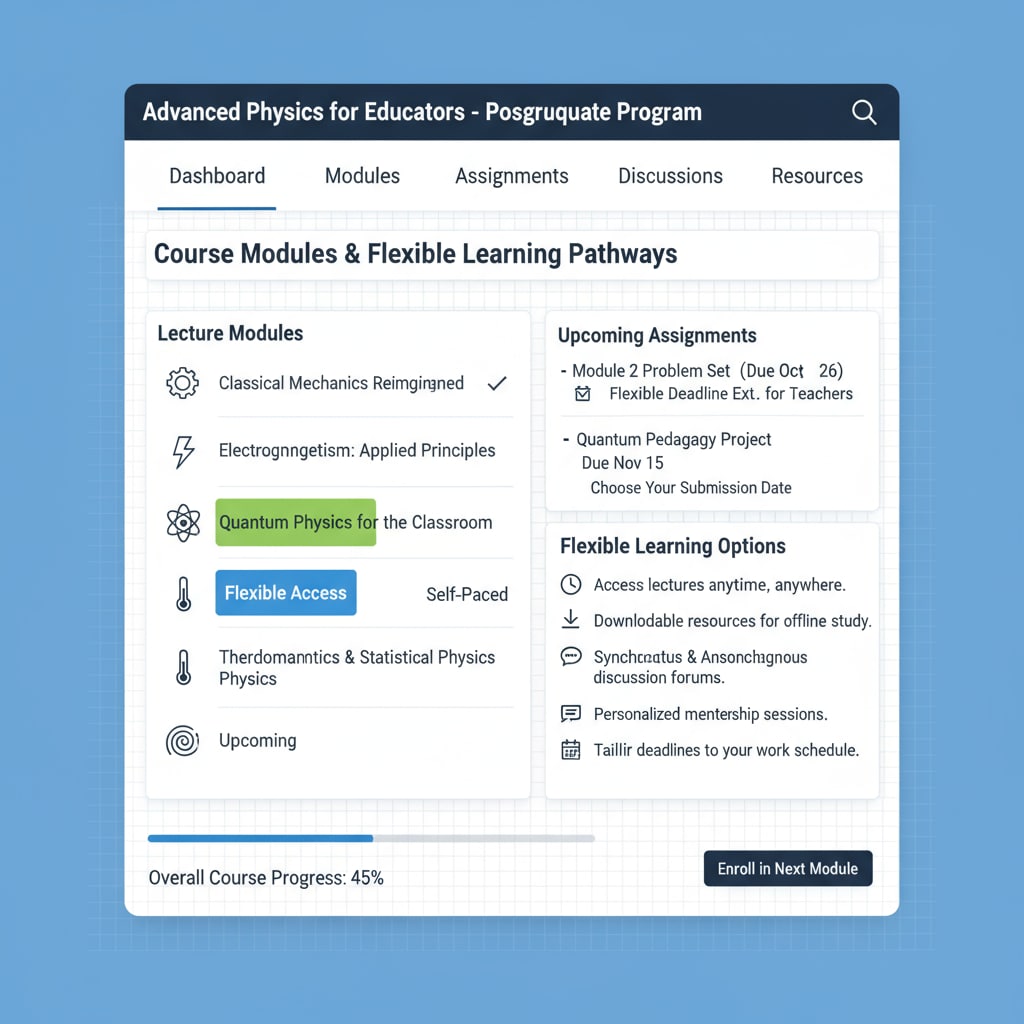Physics teachers, postgraduate education, and on-the-job learning are closely intertwined aspects that can significantly enhance the professional growth of educators in the field of physics. In today’s rapidly evolving educational landscape, K12 physics teachers are constantly seeking ways to expand their knowledge and skills. Pursuing a postgraduate degree while working offers a unique opportunity to achieve this goal.

Flexible Learning Modalities for Physics Teachers
One of the key advantages of on-the-job postgraduate education for physics teachers is the availability of flexible learning options. Many institutions now offer online courses, allowing teachers to study at their own pace and convenience. For example, platforms like Coursera and edX collaborate with renowned universities to provide high-quality physics courses. This flexibility enables teachers to balance their teaching responsibilities with their studies. In addition, some programs offer blended learning models, which combine in-person lectures with online coursework. This approach provides the best of both worlds, allowing teachers to interact with professors and peers while also having the flexibility to study remotely.

Professional Development Pathways
Enrolling in a postgraduate program as a physics teacher opens up numerous professional development pathways. Firstly, it deepens their understanding of advanced physics concepts, which can be directly translated into more engaging and in-depth classroom teachings. For instance, a teacher who studies quantum mechanics at the postgraduate level can introduce cutting-edge ideas to their students. Secondly, it enhances research skills. Teachers can engage in research projects related to physics education, contributing to the academic community and improving teaching methods. Moreover, a postgraduate degree can also lead to career advancement opportunities, such as taking on leadership roles in educational institutions or participating in curriculum development projects.
Balancing work and study is a crucial aspect for physics teachers pursuing postgraduate education. It requires effective time management skills. Teachers should create a detailed schedule that allocates specific time slots for teaching, studying, and personal life. Setting clear priorities is also essential. For example, they can focus on completing urgent tasks first and then allocate time for less pressing ones. Additionally, seeking support from colleagues, family, and friends can make the journey more manageable. Colleagues can share teaching responsibilities during busy study periods, while family and friends can provide emotional support.
Readability guidance: As seen above, we’ve used short paragraphs and clear headings to enhance readability. Each section focuses on key aspects of on-the-job postgraduate education for physics teachers. By using transition words like “firstly,” “secondly,” and “moreover,” we’ve made the flow of the article smooth. Also, the examples provided help illustrate the points clearly, making it easier for readers to understand the concepts.


